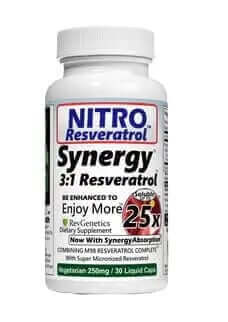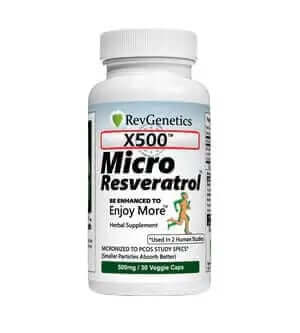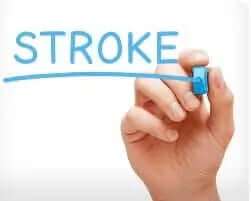Resveratrol: The Ultimate Guide to Heart-Healthy Benefits and Natural Sources
Resveratrol has emerged as one of the most promising natural compounds for cardiovascular health, offering hope to millions seeking effective ways to protect their hearts. This powerful antioxidant, found naturally in red wine, grapes, and certain berries, represents a breakthrough in understanding how specific nutrients can support heart function, improve cholesterol levels, and potentially reduce the risk of heart disease.
What Makes Resveratrol Essential for Heart Health
The journey to better cardiovascular health often leads to resveratrol, a polyphenol compound that has captured the attention of researchers worldwide. This remarkable substance works at the cellular level to protect blood vessels, reduce inflammation, and support overall heart function. For anyone looking to enhance their cardiovascular wellness naturally, understanding resveratrol's mechanisms and benefits opens doors to transformative health improvements.
Scientific studies reveal that resveratrol acts as a potent antioxidant, neutralizing harmful free radicals that can damage heart tissue and blood vessels. This protective action helps maintain the flexibility and integrity of arteries, promoting healthy blood flow throughout the body. The compound's ability to influence multiple pathways simultaneously makes it particularly valuable for comprehensive heart protection.
The Science Behind Resveratrol and Cardiovascular Protection
Research into resveratrol benefits continues to unveil fascinating insights about its cardiovascular effects. Studies demonstrate that this compound helps regulate cholesterol levels by increasing HDL (good cholesterol) while potentially reducing LDL (bad cholesterol). This dual action creates a more favorable lipid profile, which is crucial for maintaining clear, healthy arteries.
Beyond cholesterol management, resveratrol exhibits anti-inflammatory properties that address one of the root causes of heart disease. Chronic inflammation in blood vessels can lead to plaque buildup and arterial damage. By reducing inflammatory markers, resveratrol helps create an environment where blood vessels can function optimally and resist damage over time.
The compound also shows promise in preventing blood clot formation, another critical factor in heart attack and stroke prevention. By influencing platelet aggregation and blood flow dynamics, resveratrol supports the body's natural ability to maintain proper circulation without excessive clotting risks.
Natural Sources of Resveratrol: Beyond Red Wine
While red wine often receives attention as a source of resveratrol, numerous other foods provide this beneficial compound without alcohol consumption. Red and purple grapes, particularly their skins, contain significant amounts of resveratrol. This explains why grape juice, especially varieties made from dark grapes with extended skin contact, can offer similar benefits to red wine.
Berries represent another excellent source of resveratrol. Blueberries, cranberries, and mulberries all contain varying amounts of this compound, along with complementary antioxidants that enhance overall health benefits. Peanuts and pistachios also provide resveratrol, making them heart-healthy snack options when consumed in moderation.
For those seeking concentrated doses, resveratrol supplements offer a convenient alternative. These supplements typically derive resveratrol from Japanese knotweed or grape sources, providing standardized amounts without the calories or potential risks associated with alcohol consumption.
How Resveratrol Transforms Heart Health: Real Benefits You Can Experience
People incorporating resveratrol into their wellness routines often report noticeable improvements in their cardiovascular health markers. Blood pressure readings may show positive changes, with some individuals experiencing reductions in both systolic and diastolic measurements. This improvement stems from resveratrol's ability to support healthy endothelial function, helping blood vessels relax and contract properly.
Energy levels and exercise capacity frequently improve as cardiovascular efficiency increases. The enhanced blood flow and oxygen delivery supported by resveratrol can translate into better stamina during physical activities and quicker recovery times. Many people find they can engage in heart-healthy exercises more comfortably and consistently.
Laboratory results often reflect the internal improvements occurring with regular resveratrol intake. Cholesterol panels may show favorable shifts, with HDL levels rising and LDL levels stabilizing or decreasing. Inflammatory markers like C-reactive protein might also decline, indicating reduced cardiovascular risk.
Optimal Ways to Incorporate Resveratrol Into Your Daily Routine
Creating a sustainable approach to resveratrol consumption involves understanding both dietary sources and supplementation options. For those who enjoy red wine, moderate consumption (one glass daily for women, up to two for men) can contribute to resveratrol intake while potentially offering additional polyphenols and relaxation benefits. However, alcohol consumption isn't necessary or recommended for everyone.
Building meals around resveratrol-rich foods creates delicious opportunities for heart health. A breakfast featuring fresh berries with nuts, a lunch salad topped with red grapes, or an afternoon snack of peanut butter on whole grain crackers all contribute to daily resveratrol intake. These whole food sources provide additional nutrients that work synergistically with resveratrol.
Supplementation offers precise dosing for those seeking therapeutic levels of resveratrol. Quality supplements typically provide 250-500mg per serving, far exceeding what's available through diet alone. Taking supplements with meals enhances absorption and reduces any potential digestive discomfort.
Understanding Resveratrol Dosage and Safety Considerations
Determining the right amount of resveratrol depends on individual health goals and current status. Research studies have used various doses, typically ranging from 150mg to 1000mg daily. Starting with lower doses allows the body to adjust while monitoring for any effects or improvements in cardiovascular markers.
Safety profiles for resveratrol appear favorable, with most people tolerating it well even at higher doses. Some individuals might experience mild digestive changes initially, which often resolve as the body adapts. Those taking blood-thinning medications should consult healthcare providers before adding resveratrol supplements, as the compound can influence blood clotting.
Timing matters when taking resveratrol supplements. Many experts recommend splitting daily doses between morning and evening for sustained blood levels. Taking resveratrol with foods containing healthy fats can enhance absorption, maximizing the cardiovascular benefits.
The Future of Resveratrol in Cardiovascular Medicine
Ongoing research continues to expand our understanding of how resveratrol supports heart health. Scientists explore its potential in preventing age-related cardiovascular decline, managing metabolic syndrome, and supporting recovery after cardiac events. These investigations offer hope for even more targeted applications in the future.
Emerging studies examine resveratrol's interaction with other heart-healthy compounds. Combinations with omega-3 fatty acids, CoQ10, or other antioxidants might provide synergistic benefits beyond what each nutrient offers alone. This integrated approach reflects the growing understanding that cardiovascular health responds best to comprehensive nutritional support.
Personalized medicine approaches may soon help identify individuals who would benefit most from resveratrol supplementation based on genetic factors or specific cardiovascular risk profiles. This tailored approach could optimize dosing and maximize the compound's protective effects for each person's unique needs.
Success Stories: How Resveratrol Changes Lives
Countless individuals have discovered the transformative power of resveratrol for their cardiovascular health. Many report feeling more energetic and capable of enjoying activities they previously found challenging. The confidence that comes from knowing you're actively supporting your heart health creates positive momentum for other healthy lifestyle choices.
Healthcare practitioners increasingly recognize resveratrol's value as part of comprehensive cardiovascular care plans. Integrative medicine approaches often include resveratrol alongside conventional treatments, creating synergistic benefits that support optimal heart function. This acceptance in medical communities validates what many have experienced personally.
The accessibility of resveratrol through both dietary sources and supplements means that virtually everyone can benefit from its cardioprotective properties. Whether through enjoying antioxidant-rich foods or taking targeted supplements, the path to better heart health becomes clearer and more achievable with resveratrol as an ally.
Making Resveratrol Work for Your Heart Health Goals
Implementing a resveratrol-focused approach to cardiovascular wellness requires consistency and patience. Benefits often develop gradually as the compound influences various biological pathways. Keeping track of improvements in energy, exercise tolerance, and medical markers helps maintain motivation and adjust strategies as needed.
Combining resveratrol intake with other heart-healthy practices amplifies results. Regular physical activity, stress management techniques, adequate sleep, and a balanced diet all work together with resveratrol to create optimal conditions for cardiovascular health. This holistic approach addresses multiple risk factors simultaneously.
Setting realistic expectations helps ensure long-term success with resveratrol supplementation. While some benefits might appear within weeks, the most significant cardiovascular protection develops over months and years of consistent use. This long-term perspective encourages sustainable habits that support lifelong heart health.
Frequently Asked Questions About Resveratrol
How much resveratrol should I take daily for heart health benefits?
The optimal daily dose of resveratrol varies based on individual needs, but most studies showing cardiovascular benefits use between 150-500mg per day. Starting with a lower dose around 150-250mg allows your body to adjust while monitoring for improvements in heart health markers. Some research has safely used doses up to 1000mg daily, but it's best to consult with a healthcare provider to determine the right amount for your specific situation. Remember that consistency matters more than high doses, and taking resveratrol with meals can enhance absorption.
Can I get enough resveratrol from food alone, or do I need supplements?
While foods like red grapes, berries, and peanuts contain resveratrol, achieving therapeutic doses through diet alone can be challenging. A glass of red wine typically contains 1-2mg of resveratrol, and you'd need to consume large quantities of grapes or berries to match supplement doses. For general health maintenance, a diet rich in resveratrol-containing foods provides valuable benefits. However, if you're targeting specific cardiovascular concerns or want consistent therapeutic doses, supplements offer a more practical solution. The best approach often combines both: enjoying resveratrol-rich foods for their additional nutrients while using supplements for targeted support.
How long does it take to see heart health benefits from resveratrol?
The timeline for experiencing resveratrol's cardiovascular benefits varies among individuals. Some people notice improved energy and exercise tolerance within 2-4 weeks, while measurable changes in cholesterol levels or blood pressure typically require 8-12 weeks of consistent use. The most significant cardiovascular protection develops over several months as resveratrol influences various biological pathways. Factors like dosage, overall health status, and lifestyle habits affect how quickly you'll see results. Patience and consistency are key, as the compound's protective effects accumulate over time, providing increasing benefits for long-term heart health.
Is resveratrol safe to take with heart medications?
Resveratrol is generally well-tolerated, but it can interact with certain medications, particularly blood thinners like warfarin or antiplatelet drugs. Since resveratrol has mild blood-thinning properties, combining it with these medications requires medical supervision. For most other heart medications, including statins, ACE inhibitors, or beta-blockers, resveratrol typically doesn't cause problematic interactions and may even provide complementary benefits. Always inform your healthcare provider about all supplements you're taking, including resveratrol, so they can monitor for any interactions and adjust dosages if needed. This ensures you receive maximum benefits while maintaining safety.
What's the best time of day to take resveratrol supplements?
The optimal timing for resveratrol supplementation depends on your individual response and goals. Many people find taking it with breakfast provides sustained energy throughout the day, while others prefer evening doses for potential sleep quality benefits. Splitting your daily dose between morning and evening can maintain more consistent blood levels. Taking resveratrol with meals, especially those containing healthy fats, enhances absorption significantly. Some research suggests morning doses might better support circadian rhythms and metabolic function. Experiment with different timing to find what works best for your body and lifestyle while maintaining consistency for optimal cardiovascular benefits.
Can resveratrol help if I already have heart disease?
Resveratrol shows promise for supporting cardiovascular health even in those with existing heart conditions. Research indicates it may help improve endothelial function, reduce inflammation, and support better cholesterol profiles in people with cardiovascular disease. However, resveratrol should complement, not replace, conventional medical treatments. Many cardiologists support using resveratrol as part of an integrative approach to heart disease management. The compound's antioxidant and anti-inflammatory properties may help slow disease progression and improve quality of life. Always work with your healthcare team to incorporate resveratrol safely into your treatment plan, ensuring it enhances rather than interferes with your prescribed therapies.
Are there any side effects I should watch for when taking resveratrol?
Most people tolerate resveratrol well, even at higher doses, but some may experience mild side effects initially. The most common include digestive changes like loose stools or mild stomach discomfort, which often resolve as your body adjusts. Some individuals report increased energy that might affect sleep if taken late in the day. At very high doses (above 1000mg), some people experience joint aches or tingling sensations. These effects are typically mild and temporary. Starting with lower doses and gradually increasing allows your body to adapt. If you experience any concerning symptoms, reducing the dose or taking it with food usually helps. Serious adverse effects are rare with quality resveratrol supplements.
How does resveratrol compare to other heart-healthy supplements?
Resveratrol offers unique cardiovascular benefits that complement other heart-healthy supplements beautifully. While omega-3 fatty acids excel at reducing triglycerides and inflammation, resveratrol provides powerful antioxidant protection and supports healthy cholesterol ratios. CoQ10 focuses on cellular energy production in heart muscle, whereas resveratrol protects blood vessels and improves endothelial function. Many people find combining resveratrol with other supplements creates synergistic benefits. For example, taking resveratrol with vitamin D may enhance cardiovascular protection, while combining it with magnesium supports healthy blood pressure. The key is creating a personalized supplement regimen that addresses your specific cardiovascular needs and risk factors.
Should I choose trans-resveratrol or regular resveratrol supplements?
Trans-resveratrol is the bioactive form that provides cardiovascular benefits, making it the preferred choice for supplementation. Regular resveratrol supplements may contain a mixture of trans and cis forms, with the cis form being less biologically active. Quality supplements specify trans-resveratrol content and typically provide 98% or higher purity. This ensures you're getting the form that research shows supports heart health, improves cholesterol levels, and provides antioxidant protection. While trans-resveratrol supplements may cost slightly more, the increased bioavailability and effectiveness make them worthwhile for achieving optimal cardiovascular benefits. Always check labels to ensure you're getting pure trans-resveratrol for maximum heart health support.
Can resveratrol help prevent heart disease if I have a family history?
Having a family history of heart disease makes preventive measures like resveratrol supplementation particularly valuable. While genetics play a role in cardiovascular risk, lifestyle factors and nutritional interventions can significantly influence whether those genetic predispositions manifest as disease. Resveratrol's ability to support healthy cholesterol levels, reduce inflammation, and protect blood vessels addresses several mechanisms through which heart disease develops. Starting resveratrol supplementation early, combined with other heart-healthy lifestyle choices, may help offset genetic risks. Many people with strong family histories of heart disease have successfully maintained excellent cardiovascular health by being proactive with supplements like resveratrol, regular exercise, and mindful nutrition choices.
References
- Cardiovascular Effects of Resveratrol: A Comprehensive Review
- Grapes, Wines, Resveratrol, and Heart Health
- Resveratrol and Cardiovascular Disease Prevention
- Molecular Mechanisms of Resveratrol Action
- Resveratrol: From Basic Science to Clinical Applications
- Antioxidant Properties of Resveratrol







